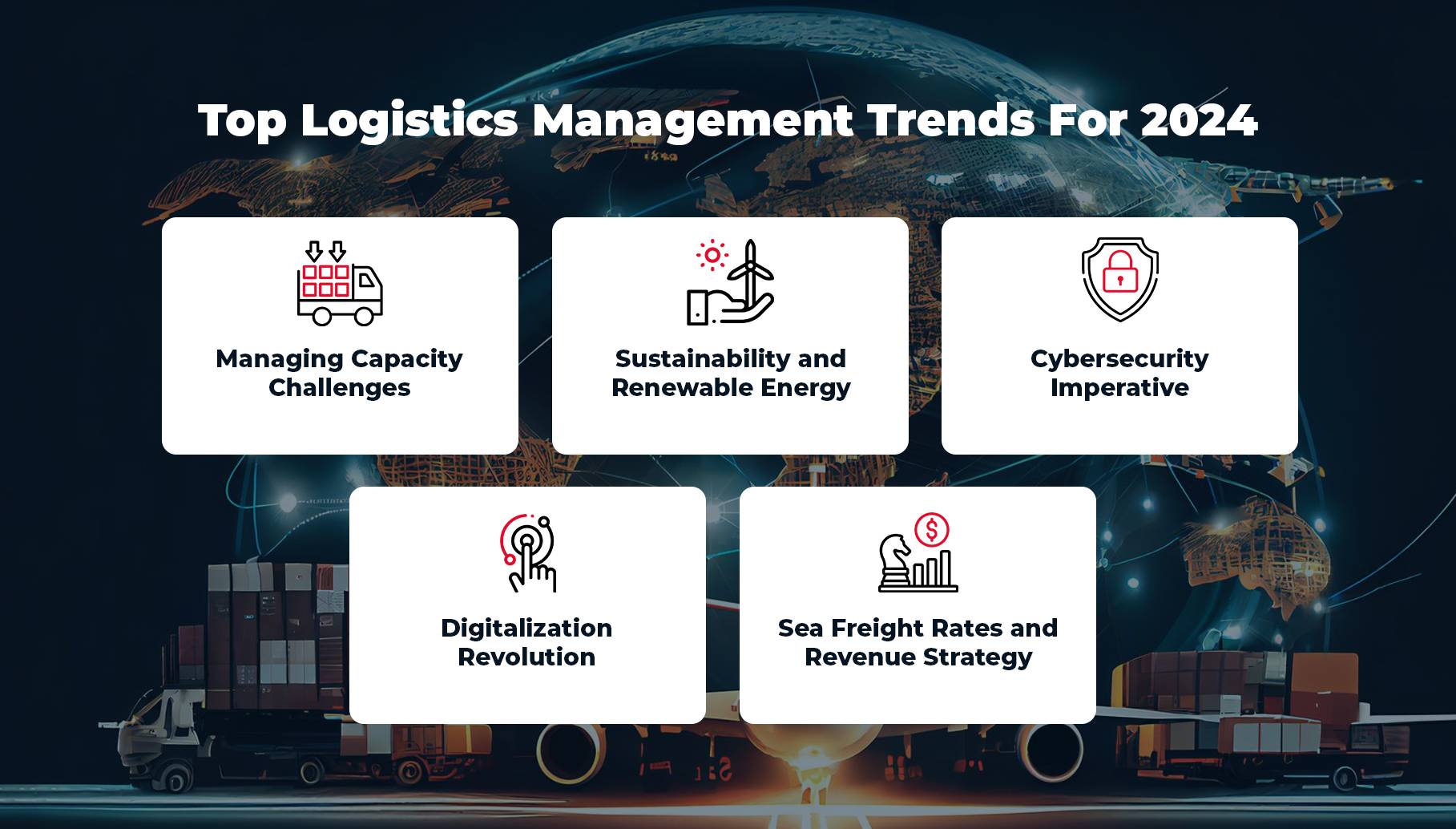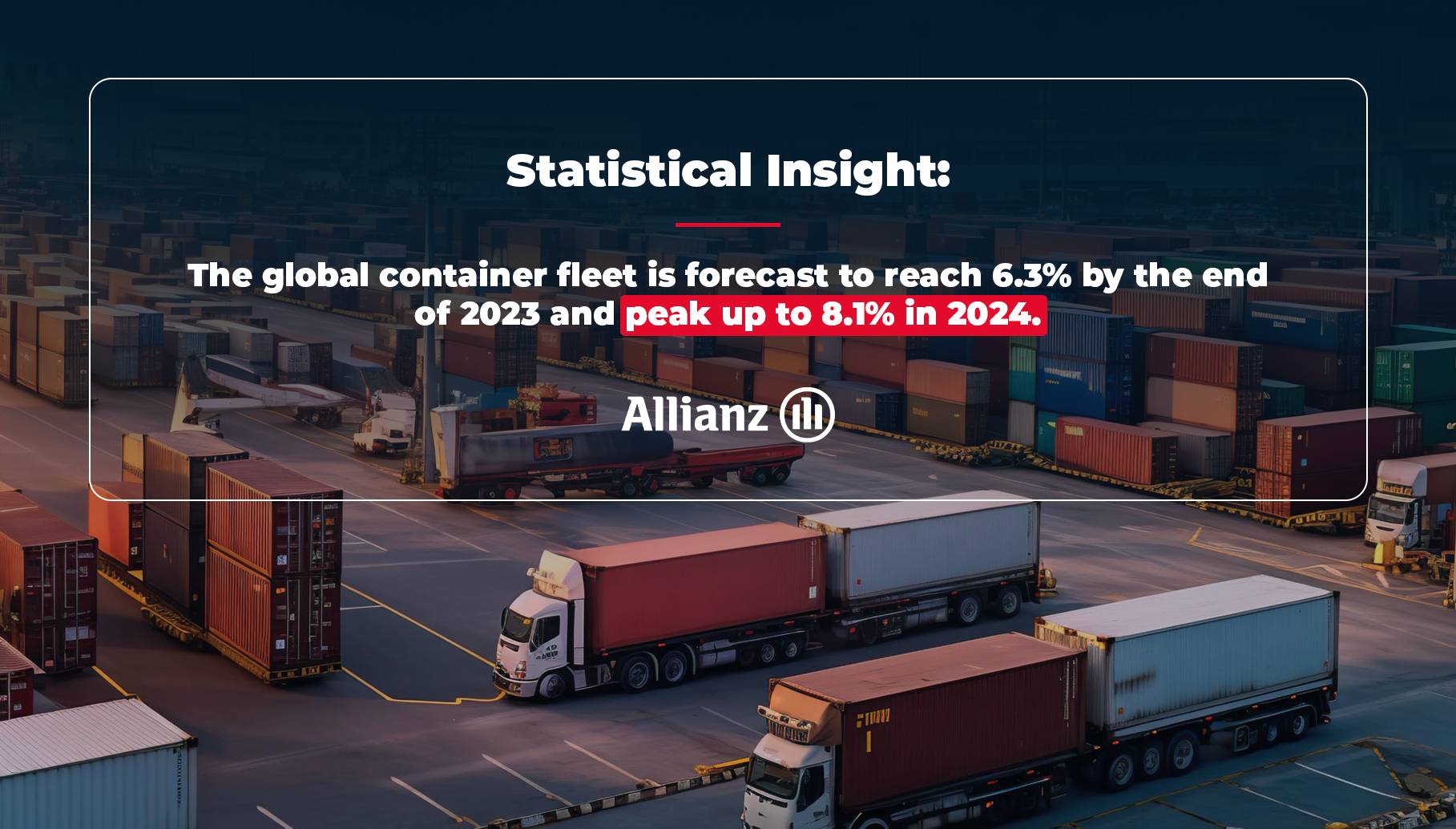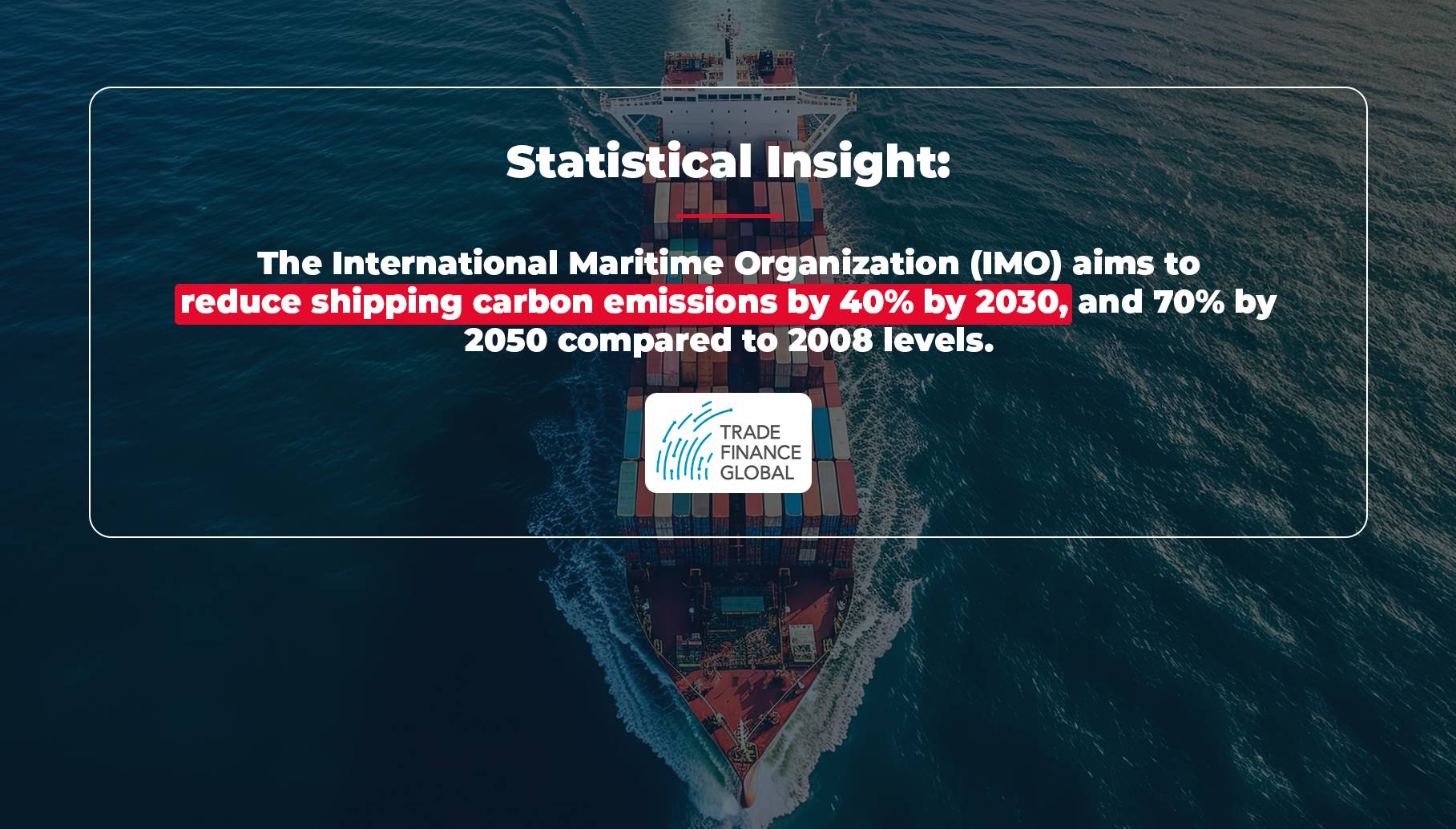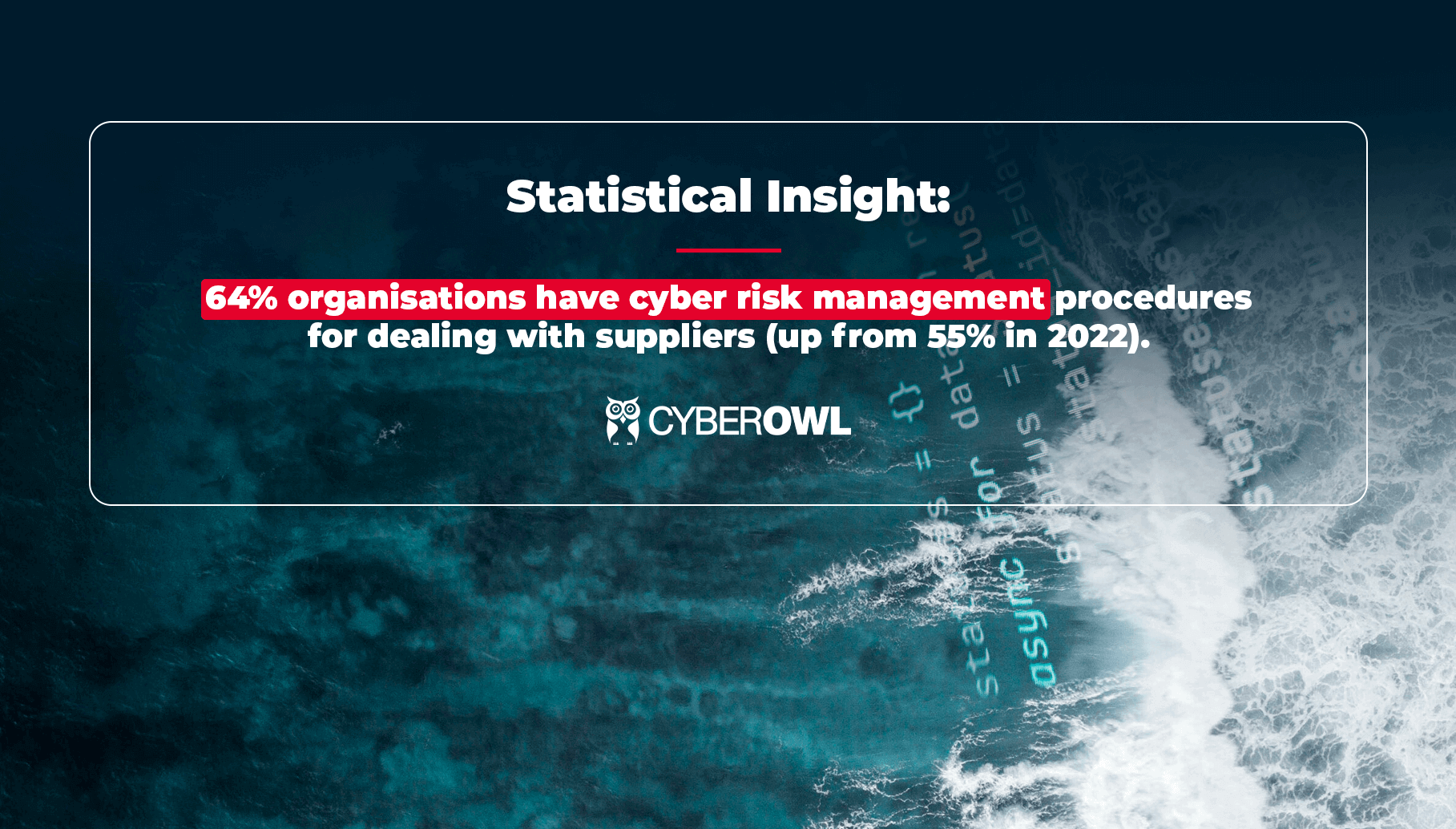
Charting Success: Navigating the Future with Logistics Management Solutions for Revenue Growth in 2024
In the ever-evolving landscape of logistics management, 2024 promises to be a year of transformative change. The logistics movement for any cargo occurs via air, ocean, and inland movements. All of these types of movements are subjected to very different challenges, and pressures and have different needs. As we look ahead, the challenges and trends that emerge are not merely hurdles to overcome but opportunities to innovate and drive revenue growth. Finding the right logistics management solutions holds the key to meeting present and scale for future challenges. Let’s explore how the top logistics management software providers are gearing up for 2024 trends to inspire success and propel the industry forward.
Top 5 Logistics Management Solutions Trends For 2024

1. Managing Capacity Challenges
The logistics industry continues to grapple with the aftermath of the COVID-19 pandemic, and one persistent challenge is the capacity crunch. According to industry experts, cargo capacity for logistics management will remain a hurdle throughout 2024. The demand for roll-on/roll-off vessels, which faced a historic low during the pandemic, is resurging as consumers resume buying new vehicles. This surge in demand, however, poses challenges for transporting large machinery and vehicles via other modes of transportation.
The key here is adaptability – recognizing the shifting demand and efficiently utilizing containerized shipping or multipurpose vessels. By navigating these shifts with supply chain agility, logistics companies can position themselves for revenue growth despite the capacity fluctuations. The use of logistics management solutions will also help businesses plan to meet capacity challenges. This in turn will help maximize revenue growth using fewer fleets for end-to-end operations.

2. Sustainability and Renewable Energy
As the world embraces the green transition, logistics plays a pivotal role in supporting renewable energy projects. The International Energy Agency forecasts a staggering $1.7 trillion investment in clean energy in 2023. This surge translates into a higher need for project cargo transportation.
For logistics companies, the opportunity lies in aligning services with the growing demand for sustainable infrastructure. Whether it’s wind energy projects or the booming electric car sector, logistics firms can position themselves as partners in the global shift towards green solutions. The use of logistic management solutions helps businesses with advanced planning, route optimization, and real-time tracking. The result – reduced carbon emissions and compliance with government regulations.

3. Cybersecurity Imperative
As the industry digitizes, the need for robust cybersecurity measures has never been more critical. In 2024, the shipping and logistics sector is set to make substantial investments in cybersecurity to protect sensitive data and thwart cyber threats. Cyberattacks can end up costing the target organization US$550,000 on average (an increase of 200% from 2022).
Multifactor authentication is expected to become the standard, ensuring the integrity of operations. By embracing cybersecurity as an integral part of logistics strategies, companies can not only safeguard their operations but also inspire trust and confidence among clients. The use of logistics management solutions such as LogiNext offers clients enhanced security. With the latest security measures, GDPR, and PDPA compliance, you can be assured to always safeguard data.

4. Digitalization Revolution
Digitalization is no longer a buzzword but a reality reshaping the logistics landscape. The pandemic acted as a catalyst, prompting even boutique shipping companies to embrace digital platforms. Artificial intelligence and blockchain technology are set to further enhance real-time shipment tracking and supply chain visibility.
For logistics businesses, this digital transformation presents an opportunity to streamline operations, reduce costs, and enhance overall efficiency, ultimately leading to revenue growth. The current trend of businesses indicates a shift toward cloud-based logistics management solutions.

5. Sea Freight Rates and Revenue Strategy
Fluctuating sea freight rates are a double-edged sword for shippers. While potential decreases can reduce operational costs, they also lead to increased demand. Navigating this scenario requires strategic thinking. Logistics companies must prepare for the challenges posed by heightened demand, ensuring supply chain resilience and timely deliveries.
By developing agile strategies to manage the impacts of fluctuating rates, logistics firms can not only weather the storm but also capitalize on the competitive advantages they bring. LogiNext’s logistics management solutions offer businesses rate charts, which help set up specific rates for each carrier. This helps select the best carriers to get the deliveries completed on time and have complete control over fleet operations.

Ensure Seamless Operations with Logistics Management Solutions
As we stand on the brink of 2024, the logistics industry is poised for a year of profound transformation. By embracing these trends as opportunities rather than obstacles, logistics professionals can not only navigate the challenges effectively but also drive revenue growth.
The key lies in adaptability, sustainability, cybersecurity, digitalization, and strategic planning. As logistics becomes an even more integral part of the global economy, those who embrace change with inspiration and innovation will undoubtedly emerge as leaders in the industry’s evolution.
Using LogiNext’s logistics management solutions, you can be assured of navigating logistics challenges with ease. Be ready to navigate the future seamlessly using the best logistics management solutions. Unlock new revenue growth by following the latest trends and staying ahead of the competition. Click on the red button below to speak with an expert.
FAQ’s on Logistics Management Solutions:
1. Why should my company consider implementing logistics management software?
Utilizing logistics management software proves beneficial for the following reasons:
Enhancing efficiency
Cutting down costs
Improving customer service
Attaining better control over your supply chain
Offering real-time visibility into your logistics operations
2. What is logistics management solutions?
The Logistics Management System (LMS) involves the strategic planning, execution, and supervision of supply chains to manage the storage, transportation, and production of goods efficiently, ensuring seamless movement from production stages to meeting customer requirements.
3. What is a logistics management system and how does it work?
A logistics management system is a comprehensive approach to planning, implementing, and controlling the flow of goods, services, and information throughout the supply chain. It involves the coordination of various activities such as transportation, storage, inventory management, and production to ensure the efficient movement of products from origin to destination. The system works by leveraging technology and strategic planning to optimize processes, enhance visibility, and minimize costs. It includes elements like route optimization, real-time tracking, and data analytics to streamline operations and meet customer needs effectively. The goal is to achieve a seamless and cost-effective supply chain that contributes to overall business success.
4. What is logistics management?
Logistics management involves the strategic planning, implementation, and control of the efficient movement and storage of goods, services, and information throughout the supply chain. It encompasses key activities such as transportation, inventory management, warehousing, and coordination to ensure the timely and cost-effective delivery of products or services while meeting customer needs. The goal of logistics management is to optimize the overall supply chain process, enhance efficiency, and minimize costs.
119 1







Pingback: LogiNext-Blog | What are the Best Logistics Management Software Tools and Techniques?